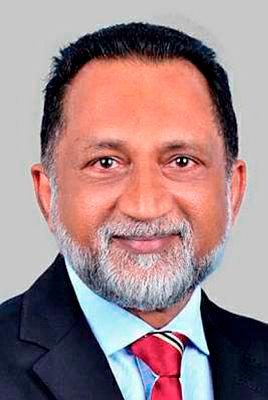PETALING JAYA: The Malaysian Employers Federation (MEF) has warned that a significant increase in health insurance premiums could compel businesses to raise the prices of their products and services.
Its president Datuk Dr Syed Hussain Syed Husman said such price adjustments would erode the competitive edge of micro, small and medium enterprises, drive customers away and reduce their market share.
“Businesses will be forced to pass on the increased costs to consumers, contributing to broader economic inflation. This will affect general price levels within the economy and decrease consumers’ purchasing power,” he said.
Syed Hussain was commenting on recent media reports of insurance providers seeking to increase premiums by 40% to 78%.
He said to mitigate these costs, some employers may reduce health insurance coverage levels, resulting in less comprehensive benefits for employees.
He urged Bank Negara Malaysia (BNM) and the government to urgently address issues related to the proposed premium increases.
Syed Hussain said many employers already provide resources and support systems to enhance employee well-being as part of a strategic approach to improving overall health.
Based on the MEF Survey on Flexible Working Arrangement: Assessing Practices and Perspectives of Private Sector Employers in Malaysia (2024), the most widely offered resource, by 46.6% of respondent companies, includes educational workshops, seminars or webinars on stress management.
Flexible working arrangements are provided by 44.5% of companies to give employees greater control over their schedules and improve work-life balance.
Additionally, 30.9% of companies offer an Employee Assistance Programme, which provides confidential support for personal and work-related challenges.
“A total of 26.7% of companies also provide management training to identify signs of stress or mental health concerns, enabling supervisors to proactively support employee well-being.
“With all of these initiatives, which cost significant amounts, employers cannot afford to absorb the cost of higher insurance premiums as well,” he said.
Comprehensive health insurance plans that include mental health coverage are available in 19.4% of companies, while 18.3% provide therapy sessions with licensed therapists or psychologists, offering professional support either on-site or off-site.
Syed Hussain added that 39.5% of companies have analysed employee health insurance claims to customise health programmes and insurance plans to address prevalent health trends and risks.
“This targeted strategy enhances employee well-being and helps control insurance costs by addressing specific health issues proactively,” he said.
MEF supports the launch of the Rakan KKM programme, which allows patients to access additional health facilities at minimal costs through a collaboration between government-linked investment companies and the Health Ministry.
Syed Hussain also commended the government’s revisions to Schedule 13 of the Private Healthcare Facilities and Services Act, particularly regarding consultant fees, and lauded BNM’s directive for insurance and takaful operators to reassess their pricing strategies for medical and health insurance products.
“In 2019, household health expenditure in Malaysia accounted for about 34% in out-of-pocket payments, higher than Singapore (30.1%) and Organisation for Economic Co-operation and Development countries (13.9%).
“This reflects the demand for private healthcare, as the public health sector is heavily congested, motivating the drive for private healthcare insurance ownership,” he said.
Despite this demand, private health insurance coverage in Malaysia remains low, with data from the National Health and Morbidity Survey 2019 indicating that only 14.3% of Malaysians have private health insurance.
“Higher insurance premium costs will force some existing policyholders to review their policies, and some may even drop out as they can no longer afford the higher premiums.”









